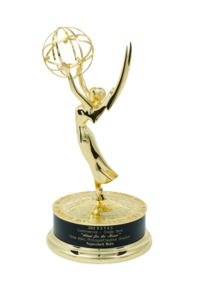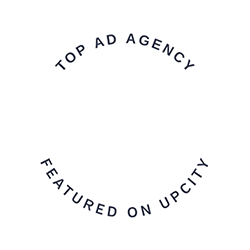The Carwash-A-Thon was a huge success!
We nearly doubled our goal of $2000 dollars!
Thank you to all of the employees, volunteers and
sponsors for making this great event possible!
(9/24/05) Listen to Rhea’s radio interview from…
![]()
Peppershock Grand Opening of Our Newest Location

A big thank you to those of you who made it out to our ribbon cutting ceremony last month. We had a great time and got to see a lot of folks.
Idaho International Film Festival — September 29th – October 2nd
A short film produced by Peppershock and Associates on the big screen! Saturday, October 1st at the Flicks Theatre in Boise, and on Sunday, October 2nd, at the Egyptian Theatre.

The short film, “No Such Thing as a Free Lunch,” was written by Drew Wattles, and directed by Rhea Allen. The film is a campy, black and white with a 1950’s feel, filmed in Nampa, Idaho. You’ll never look at a picnic basket the same way again! The film festival venues will be the Egyptian Theatre, Boise Centre on the Grove, and The Flicks Theatre. Downtown Boise will be transformed into a Film Festival Village as audiences gather post-film at downtown eateries and lounges all weekend long. For more information go to www.idahofilmfestival.com.
Watch the Boise Hawks Video produced by Peppershock!

See it on the www.BoiseOnlineMall.com. This video will require Macromedia Flash to watch. If you would like a promotional video for your website displaying your product or service, contact us at 208.461.5070 or info@peppershock.com.
Big Onion Gala, September 17 th to benefit Optimist Youth Football
 Big Onion Gala will Produce an “Onion King” for theIdaho-Eastern Oregon Onion Committee for 2005
Big Onion Gala will Produce an “Onion King” for theIdaho-Eastern Oregon Onion Committee for 2005
On September 17, 2005 , the 1st Annual “Big Onion Gala” will be held at the Boise Centre on the Grove. The semi-formal dinner incorporating regional foods (and of course, ONIONS) will be served, live entertainment will be provided and a silent and live auction will take place to benefit the Optimist Youth Football league. The evening’s activities will be highlighted with a special honorarium presented to BSU Head Football Coach, Dan Hawkins and the crowning of the Idaho E. Oregon “Onion King.” The “Onion King” will serve as a regional celebrity figure that will ultimately carry the Idaho E. Oregon Onion message nationwide. “Onion King” applications are available at the Idaho E. Oregon Onion Committee office and Paul’s Markets. For more information call 326-2010.
Top 10 Differences between Advertising and Public Relations
If you are trying to promote your company, you may have questions about advertising vs. public relations. Although both can help with your marketing efforts, these two industries are very different even though they are commonly confused as being one. The following ten properties just scratch the surface of the many differences between advertising and public relations.
1. Paid Space or Free Coverage
• Advertising: Your company pays for ad space. You know exactly when that ad will air or be published.
• Public Relations: Free publicity for the company. From news conferences to press releases, you’re focused on getting free media exposure for the company and its products/services.
2. Creative Control Vs. No Control
• Advertising: Since you’re paying for the space and for the production, you have creative control on what goes into that ad.
• Public Relations: You have no control over how the media presents your information, if they decide to use your info at all. They’re not obligated to cover your event or publish your press release or show your video news release just because you sent something to them.
3. Shelf Life
• Advertising: Since you pay for the space and production, you can run your ads over and over for as long as your budget allows, and you can run your ad with multiple media outlets. An ad generally has a longer shelf life than one press release.
• Public Relations: A press release about a new product, service or event is only submitted once. You only submit a press release about a news conference once. The PR exposure you receive is only circulated once. An editor won’t publish your same press release three or four times in their magazine, or will the nightly news run again, unless it’s on 24/7, Channel 7’s re-broadcast on cable Channel 28.
4. Wise Consumers
• Advertising: Consumers know when they’re reading or watching an advertisement. They typically know they’re trying to be sold on a product or service.
• Public Relations: When someone reads a third-party article written about your product or views coverage of your event on TV, they’re seeing something you didn’t pay for with ad dollars and view it differently than they do paid advertising.
5. Creativity or a Nose for News
• Advertising: In advertising, you get to exercise creativity in creating new ad campaigns and materials.
• Public Relations: In public relations, you have to have a nose for news and be able to generate buzz through that news. You exercise your creativity, to an extent, in the way you search for new news to release to the media. Is it compelling enough to make it?
6. In-House or Out on the Town
• Advertising: An ad agency will place ads in print outlets like magazines and newspapers as well as on TV and radio. Ad placement is carefully calculated through research and analytical models to determine what is best based on the product/service, goals and budget. All of these efforts take place within the ad-agency.
• Public Relations: You interact with the media and develop a relationship with them. Your contact is not limited to in-house communications with the ad agency. You’re in constant touch with your contacts at the print publications and broadcast news media.
7. Target Audience or Hooked Editor
• Advertising: You’re looking for your target audience and advertising accordingly. You wouldn’t advertise a women’s shoe store in a male-oriented sports section of the newspaper.
• Public Relations: You must have an angle and hook editors to get them to use info for an article, to run a press release or to cover your event. The assignment editor and news director become your best friends.
8. Limited or Unlimited Contact
• Advertising: Ad agency account executives remain in constant contact with their clients and take care of contacting everyone else for the client. Outside media sales reps, copywriters, graphic designers or video producers in the agency may not need to meet with the client at all.
• Public Relations: In public relations you are very visible to the media. PR people aren’t always called on for the good news. If there was an accident at your company, you may have to give a statement or on-camera interview to reporters. You may represent your company as a spokesperson at an event. Or you may work within community relations to show your company is actively involved in good work and is committed to the city and its people.
9. Special Events
• Advertising: If your company sponsors an event, you will promote the event, but you wouldn’t want to take out an ad giving yourself a pat on the back for being such a great company. This is where your PR steps in.
• Public Relations: If you’re sponsoring an event, you can send out a press release and the media might pick it up. They may publish or air the information or cover the story while it’s happening, but the key word here is they “might” cover the event, there is no guarantee, so make the press release as compelling as possible.
10. Writing Style
• Advertising: Buy this product! Act now! Call today! These are all things your can say in an advertisement. You want to use those buzz words to motivate people to buy your product so the script or copy is geared to promote an action from your audience.
• Public Relations: You’re strictly writing in a no-nonsense news format. Any blatant commercial messages in your communications are disregarded by the media as they are committed to being unbiased and non-commercial as much as possible.





